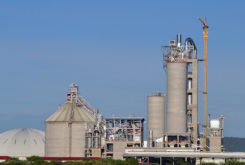The government of new Angolan president João Lourenço has made a good start in trying to improve the terms of investment for foreign firms.
The Private Investment Law has been revised and the separate Competition Law passed by the National Assembly with virtually no opposition. The World Bank lists Angola among the 20 worst countries in the world in which to do business, so deep seated change is certainly needed.
The biggest change is the removal of the obligation on foreign companies to invest in conjunction with local partners. In most sectors, Angolan firms previously had to control at least 35% of capital in joint ventures, with higher requirements in some cases. Such restrictions are generally designed to encourage foreign partners to transfer knowledge and technology to domestic companies, while encouraging the latter to grow.
In practice, however, the domestic firms involved are often merely sleeping partners that have little input themselves but still take their share of profits. In addition, the process of selecting these domestic partners can be opaque, with their owners often connected to political leaders.
Restrictions on small scale foreign investment have also been lifted. Companies were previously required to invest at least $230,000, ostensibly to protect Angolan firms but this merely served to exclude a more diverse range of foreign investors. The other main changes are:
- A new competition authority is to be set up to ensure fair competition in every sector.
- The government plans to privatise more than 70 state owned companies over the next few years.
- The Competition Law seeks to end monopolies in key sectors, such as telecommunications and cement production.
- Requirements on employing Angolans have been lifted.
- The Private Investment Law aims to slash the level of bureaucracy, although the government has not yet specified what this will mean in practice.
- The new legislation also provides more certainty over the terms of investment in an attempt to create a more secure investment environment.
The United Nations Conference on Trade and Development provides full details on the outgoing trade regulations. The government is keen to publicise its new attitude to foreign investment. In June, the Angolan American Chamber of Commerce and the Angolan Investment and Export Promotion Agency signed an agreement to produce Angola’s first investment guide.
New legislation is part of a wider push for economic reform led by Lourenço.In his first year in power, the president has started to strengthen governance, launching investigations into the apparent misappropriation of funds at several state organisations, dismissing some officials and creating a new anti-corruption unit. Programmes to diversify exports and substitute imports have also been launched.
The IMF reported that the new government had “made strides in setting a reform agenda geared towards macroeconomic stability and growth that benefits all its people” and was committed to implementing reforms. It also praised the devaluation of the kwanza, which should help stabilise the economy in the long run. The macroeconomic stabilityprogrammethat Luanda launched in January 2018 has the following targets:
- Reducing the public debt-to-GDP ratio to 60% in the medium term.
- Improving the public debt profile.
- Settling domestic payments arrears.
- Effectively implementing anti-money laundering legislation.
IMF encouragement
The IMF appears to have played a significant role in persuading the government to push through the new legislation. For many years, Luanda was able to ignore IMF advice on economic liberalisation and improved governance because of its oil wealth.
However, four years of sustained low oil prices have severely affected government finances. The government deficit last year was 6% of GDP, so it is clear that there is a lot of work to do. Total gross public debt as a percentage of GDP rapidly increased from 28% in 2012 to 75% in 2016 but has since begun to fall as oil prices have begun to recover.
Lourenço seems determined to wean the country off its hydrocarbon reliance and the head of an IMF mission that visited Luanda in March, Ricardo Velloso,reported that the government was keen to end the monopolies that exist in many sectors.The mission agreed that: “The new government is making concerted efforts to improve the business environment.”
The reforms should help to attract preferential loans from the IMF and other organisations, including for higher public spending in areas identified as priorities by the IMF, such as education and poverty alleviation.
Diamond investment
Separate legislation is planned for the country’s most important industries. In June, Lourenço announced that controls on foreign investment in the diamond sector would be loosened. The requirement for foreign companies to invest in conjunction with Angolan firms is even more onerous on diamond projects than in the wider economy. They can currently only participate as minority partners and are forced to sell all production via state trading company Sodiam at below international prices. Many of Sodiam’s customers had connections to Angola’s political elite.
As a result, Angola’s biggest diamond mine, Catoca, calculates that it has lost $464 million over the past six years.Mining companies will now be able to decide who buys up to 60% of their precious stones and could even sell them to their own trading operations. The price paid for stones will be determined by an index in line with a basket of international prices.
Angola currently produces an average of 6.5 million carats a year but the government hopes to increase this to 14 million carats a year by 2022. In particular, it is hoped that international companies with wide exploration experience can open up new mines. Lourenço said: “We recognize that the policies for this sector, established by us, do not best serve the interests of the country, nor of the producers.” A new law has been drafted but not yet passed.
Oil revenues
It will be interesting to see whether current higher oil prices weaken government plans to liberalise the economy. Global oil prices averaged $75 a barrel in the first week of July and many analysts believe that the rise will be sustained. Many hydrocarbon-dependent economies agree to IMF restructuring programmes when oil prices are low but their resolve quickly crumbles when prices recover.
However, two connected factors could persuade Luanda to continue with its reforms. Firstly, Angola’s population is growing very quickly. It currently stands at about 29.4 million, with a growth rate of 3.4% in 2016 – one of the highest rates in the world. As a result, more and more oil production and revenue is required to have the same economic impact.
At the same time, after 15 years of steadily rising output, oil production has stagnated and has actually begun to fall. It declined from an average of 1.72 million b/d last year to 1.52 million b/d in March, so the country now produces just 18.87 barrels of oil per person per year. The government forecasts economic growth of 2.2% for this year – representing a modest recovery – but even this is insufficient to keep pace with population growth.
According to the government, oil production on established fields is set to fall by 36% between 2017 and 2023, so new production is required to replace this. Most Angolan oil production lies on deepwater fields, where production is more expensive. During the years of low prices, international investors were reluctant to invest in either exploration or maintaining output on existing fields.Energy Aspects analyst Richard Mallinson said: “Most Angolan fields have struggled or entered into a steep decline phase after three years – it’s the nature of the geological characteristics of Angola’s offshore production.”
Oil reforms
However, the government hopes to turn the oil industry’s fortunes around with amendments to existing legislation and regulation.The tax on profits from oil and gas fields has already been cut from 50% to 25%, while taxes on marginal fields have also been halved, from 20% to 10%. Marginal fields are defined as those with reserves of less than 300 million barrels, making it a fairly low hurdle for inclusion.
Oil companies will be allowed to expand the size of their licensed blocks if they discover fields that extend beyond their original concessions into unlicensed territory. At the same time, perhaps taking lead from the plan break-up and reform of the Nigerian National Petroleum Corporation (NNPC), the government plans to restructure state oil company Sonangol, including the privatisation of some of its non-core subsidiaries.
It hopes that the reforms will deliver an increase in oil production of 250,000 b/d by 2020. ExxonMobil is in talks over new investment in Block 15 and to sign concessions covering new blocks. Even under the existing investment regime, some new production is already under development, including the Total-operated $16 billion Kaombo ultra deepwater project, which will eventually yield 230,000 b/d.
Angola did not previously have specific gas industry legislation, as gas was seen as a mere offshoot of the oil sector. However, the government now plans a gas industry bill to encourage greater exploration and production. This falls in line with the approach of most other African oil producers, which view natural gas as becoming increasingly valuable. Foreign companies will also now be permitted to market and distribute gas within the country. Producers will be taxed at a rate of 5% of gas production and 25% of gas revenue.
Outlook
Angola urgently needs to focus on non-oil sector growth in order to create a more balanced, stable economy, create more employment and spread growth around the country. Yet the oil industry will continue to generate the lion’s share of income for the foreseeable future and so it is right that Luanda is trying to reverse the slump in investment.
There are no guarantees that the reform process will be either sustained or deep enough but Lourenço has at least made a start on the mammoth task that awaits him.Many political leaders in similar positions have merely replaced one form of cronyism and authoritarianism with another. Only time will tell whether Lourenço follows this pattern or brings lasting change to his country.



